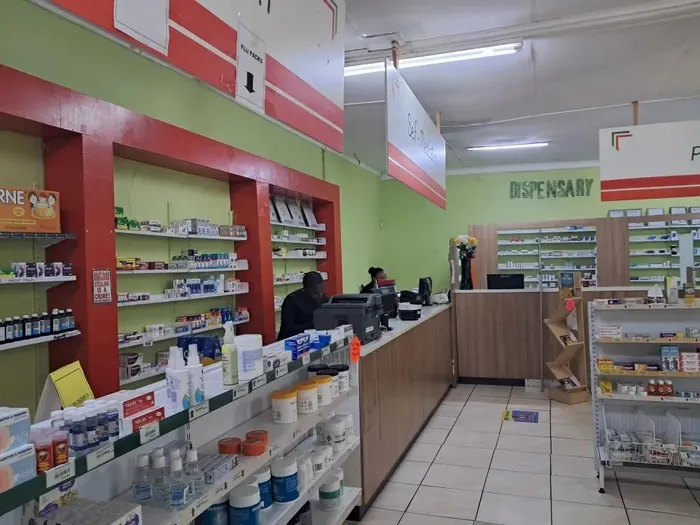The future of pharmacies in South Africa lies in sustainable expansion

Rural pharmacies are a key resource to impoverished communities, not simply to supply medicines, but for holistic health care.
Image: Supplied
Pharmacies, especially ones in rural areas, are often the cornerstone of their communities.
Beyond filling prescriptions, they provide medication, medical equipment, and counselling, sometimes serving as multi-service clinics in small towns and outlying areas.
When people cannot wait weeks for a doctor’s appointment, or need trusted advice, the local pharmacy is their first stop.
In many outlying areas, it is not just the most practical option, but often the only one. With the country’s high and rising burden of chronic disease, this role will only grow in importance.
The sector is indeed expanding. In just two years, 2020 and 2021, about 648 new community pharmacies opened across South Africa. By 2021, the total number stood at roughly 3,580 outlets, and nearly 70% of these were independent rather than corporate-owned. That is over 2,000 small businesses carrying community healthcare.
But every pharmacy is also a business. Behind the scenes, owners are juggling supplier deliveries, unpredictable supply chain issues, negotiating credit terms, paying staff, and trying to keep overheads under control. Balancing that with the responsibility of keeping communities healthy makes pharmacy ownership uniquely challenging and uniquely important.
Why more pharmacies are needed
A growing number of South Africans are living with chronic illness such as diabetes, hypertension, and HIV. These patients cannot miss their repeat medications and local pharmacy access becomes essential. Independent outlets do more than only dispense medicine, they also cut travel time, keep treatment within reach, and help build local economies.
Around the world, the role of a pharmacy is expanding. They are no longer limited to handing out prescriptions. According to Deloitte, many pharmacies are transforming into community health hubs by adding point-of-care testing, preventative health screening, and digital services to meet the changing expectations of modern consumers. Locally, they are also incorporating retail services to diversify their offerings further.
Running a pharmacy like a retailer
Passion for helping people will take you far as a pharmacist, but on its own, it will not keep the doors open. Independent pharmacies need to be run with the same discipline as any other retailer. Cash flow must be watched so staff are paid and suppliers are not left waiting. Shelves must carry the medicines that matter most without tying up money in products that sit for months. Costs like rent and electricity creep up quickly, and if unchecked, margins vanish.
Strong supplier relationships also make a difference. Paying on time, negotiating fairly, and keeping that trust intact can protect a business when times are tough. And like any other retailer, pharmacy owners have to be careful about how much debt they take on. Too much, too soon, can put even a busy store under pressure.
When these basics are in place, a pharmacy is not just a trusted point of care. It is also a resilient business that can think about growing, instead of simply surviving.
Where funding helps
Growth always asks for money before it offers returns. Anyone who has opened a second branch, hired staff, or added delivery knows this reality. The bills arrive first, and only later does the revenue follow. For a small independent owner working on thin margins, that can feel like a brick wall.
This is also the point where funding can be an enabler rather than a burden. At Merchant Capital, we treat pharmacies like retail businesses because that is what they are. They need capital that moves quickly, without red tape, and repayment models that flex with real turnover rather than with a rigid schedule. That flexibility gives owners breathing space, the confidence to back their instinct, invest in a new outlet, upgrade systems, or respond to their community.
Looking ahead
Independent pharmacies have already shown how vital they are to South Africa’s healthcare system. The next step is ensuring more of them open in the areas where they are most needed. With sound business management and access to the right kind of funding, these enterprises can grow their footprint, create jobs, and continue to provide reliable access to healthcare.
Christina Mooki is the head of acquisition operations at Merchant Capital.

Christina Mooki is the head of acquisition operations at Merchant Capital.
Image: Supplied.
BUSINESS REPORT